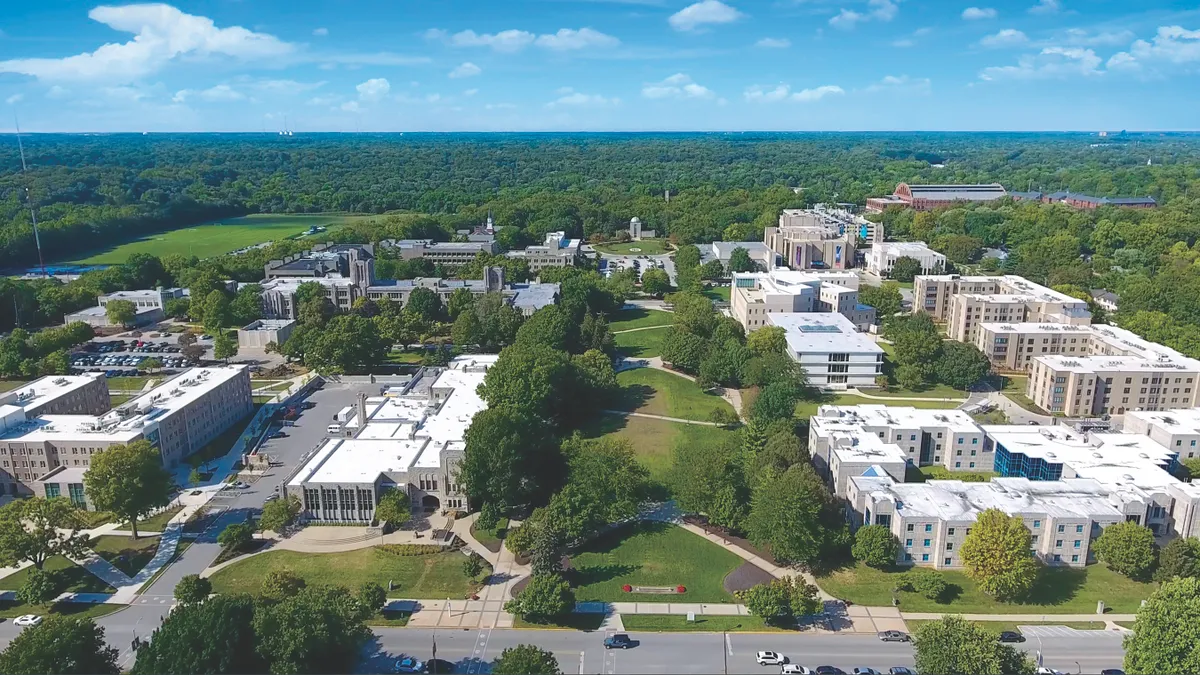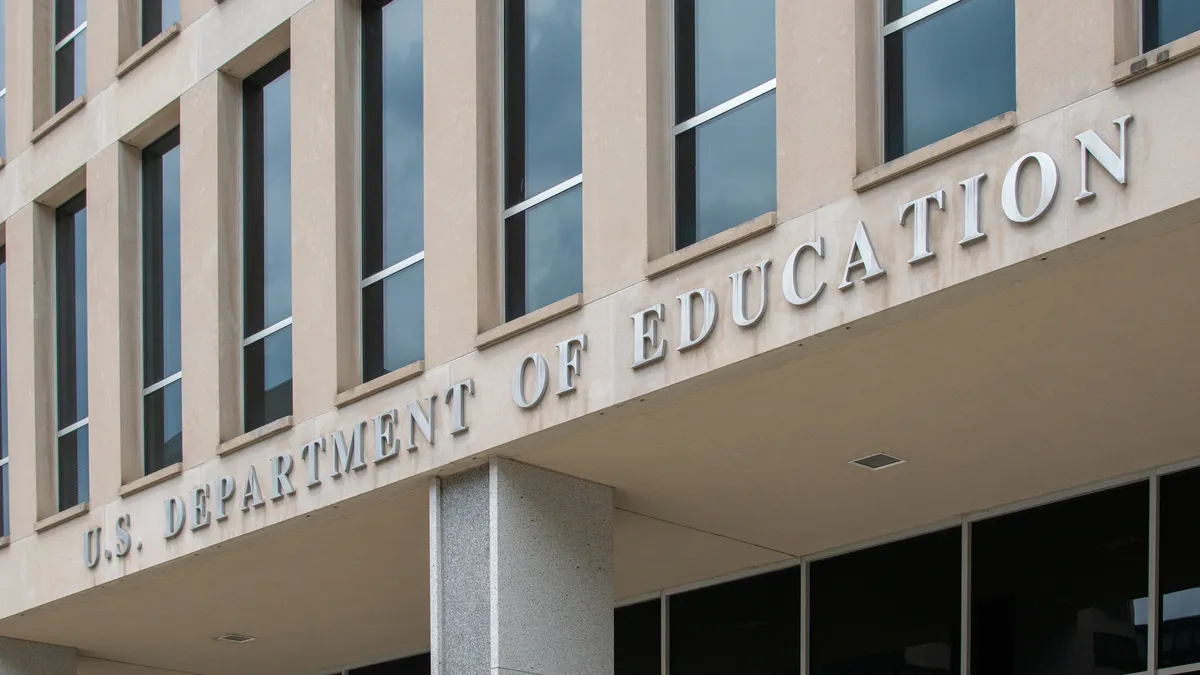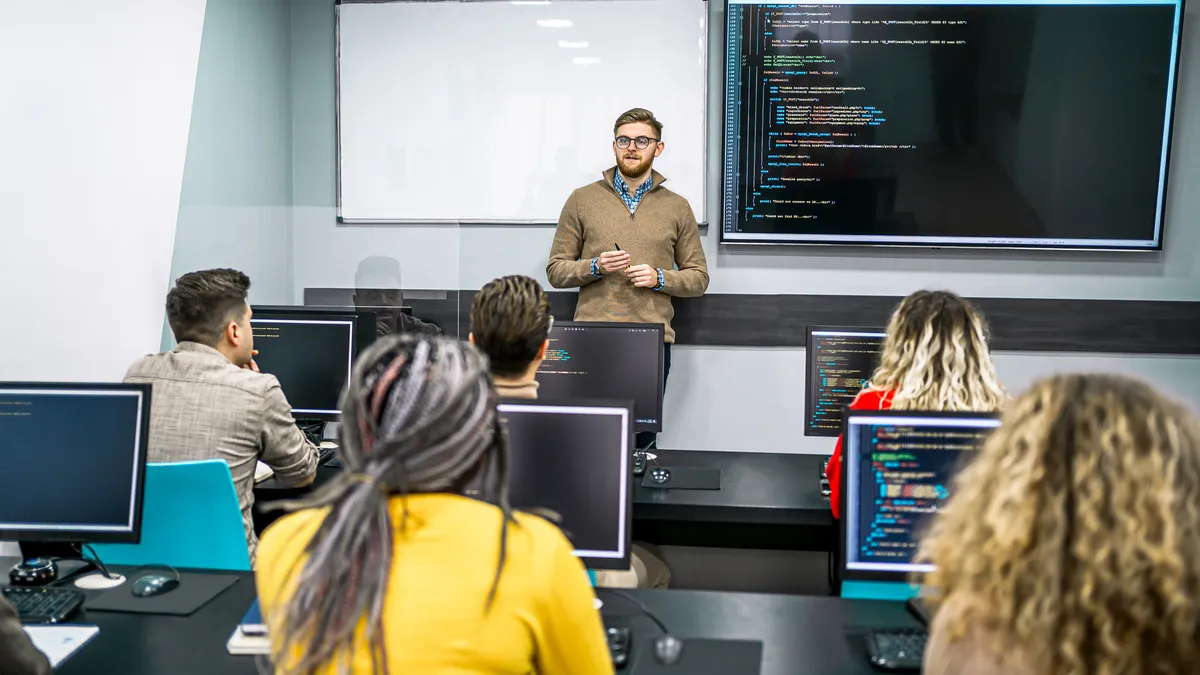A few years ago, Butler University launched a wellness initiative called BU Be Well, which focuses on several pillars, including finding one's meaning and purpose, engaging in lifelong learning and finding harmony in relationships.
The roughly 5,500-student private nonprofit university in Indianapolis is in good company. Universities nationwide — from George Mason University in Virginia to the University of California, Los Angeles — have launched efforts to increase student and employee well-being.
The efforts take many forms. Some are simple, such as having napping pods on campus and hosting yoga classes to encourage physical activity. Others are more involved, like centralizing or bolstering an institution's mental health services.
More recently, Butler has set its sights on ramping up these types of services by launching the Institute for Well-Being.
The BU Be Well initiative paved the way for the institute's creation, said Josh Downing, the institute's co-executive director.
"It started to gain national recognition," Downing said. "We started to get contacted by a number of universities asking, 'How are you doing this? Can you explain this? Can you help us?'"
The institute will have four services: helping colleges and businesses conduct surveys to assess their initiatives, offering an online credential for well-being practitioners, consulting with institutions to implement well-being efforts, and engaging with community organizations.
The institute is starting with the first service by launching the Student Well-being Institutional Support Survey, or SWISS. It's designed to capture students' thoughts about how well they think their institutions support their well-being. Roughly 20 colleges have administered the survey so far.
Higher Ed Dive spoke to Downing and Bridget Yuhas, the institute's other co-executive director, to learn more about SWISS and well-being trends on campus.
This interview has been edited for clarity and brevity.
HIGHER ED DIVE: Can you tell me about the work of the institute?
JOSH DOWNING: We've been working on this for a couple years now, and really where it stems from is thinking about health. In higher education as a whole, there's the need to commit and focus on well-being from a holistic perspective for campuses. Back in 2018, NIRSA: Leaders in Collegiate Recreation and the National Association of Student Personnel Administrators came together and released a commitment statement, basically saying that very thing: that if we, universities, commit to a holistic well-being, it will lead to student success.
Why did the university launch a survey to assess the effectiveness of well-being initiatives?
BRIDGET YUHAS: We had this great well-being initiative, BU Be Well, and we needed to learn a little bit more about its influence on students and even just if students knew what it was and understood well-being. In the interest of finding that out, we did a number of smaller surveys.
In order to get the most actionable information for folks working with students and building resources, we realized we needed to find out from students how well we were doing. We needed to ask students if we were supporting them in the ways they needed.
What were some of the things you found out when you used that survey on your own students? Did it result in changes to your well-being initiatives?
YUHAS: We were able to get more folks to tailor their work to the data. For example, we found out that students, when you look at the average, felt like we didn't do a great job of supporting them if they wanted to find out about better nutrition. But I happen to know the nutritionist on campus, and she's awesome, so I was really surprised by that finding.
We broke it out by a bunch of student characteristics and found out that first-year students definitely feel supported in learning about better nutrition and seeking out those resources. But as students moved on through their years of Butler, that fell off completely. Our nutritionist was able to take that information and tailor her outreach to get to some of the older students, the fraternities and sororities, and off-campus housing, to make sure that they also knew that she was available to help them. In that way, it really helped her to be a little bit more targeted and efficient with her work.
You also piloted the survey at other institutions. What were some of the results from that phase? Did participating institutions end up tweaking their own well-being initiatives or are they still parsing through that data?
YUHAS: They're in different spots. One institution took the information and broke it out by commuter students versus residential students because they really were interested in focusing on how they can better support students living off campus. A university system that administered the survey is looking at well-being and how it differs by campus location, what students are saying they need at the various campuses, and how as a system they can look at where resources are allocated to meet those needs. We've had other institutions that were really surprised by the basic needs information that came out, so we're working to address those in various ways.
Being able to break out the findings by race or ethnicity has been really helpful for institutions. When I send my reports back to the schools, I include overall frequencies and percentages, as well as a breakout by students' self-identified race and ethnicity.
The schools don't even have to make that effort. They have that information right there, which I think is really important in terms of making sure that we're really disaggregating the data. The average can hide a lot.
Do you anticipate that the institute will be a major revenue producer for the university a few years down the road?
YUHAS: That's definitely not our focus. We're not going to be an auxiliary or look to be a profit-generating part of the organization. We are charging for our costs.
What will the fees be for colleges that want to administer the survey?
YUHAS: It'll be $2,500 total — a $500 registration fee and then $2,000 for administration. That's for any campus, it doesn't matter the size or how many students they're surveying. It's a flat rate.
What lies ahead for the institute? What are some of your top goals for 2022?
DOWNING: Much like we piloted SWISS, we are going to highlight the consulting services aspect here the first year. As these institutions get results back from SWISS — whether they're on their way with a well-being initiative on their campus or they're looking just to get started — we know we should follow that up with the consulting services. That will be something that we want to pilot so we can help those institutions take the data to action.























